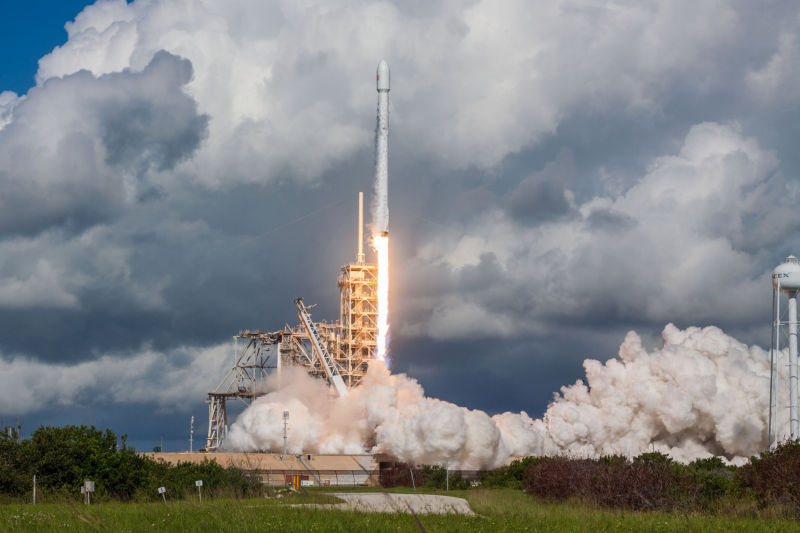
The increasingly warm relationship between the US Air Force and the rocket company SpaceX appears to be approaching full-on bromance levels. The latest words of lavish praise for SpaceX have come from Gen. John W. Raymond, commander of Air Force Space Command, which oversees launch operations for the US military and national security sectors.
In an interview with Bloomberg, Raymond said the potential savings from reusable rockets like the Falcon 9 booster now being flown and reflown by SpaceX are irresistible. “The market’s going to go that way. We’d be dumb not to,” he said. “What we have to do is make sure we do it smartly.” It would be "absolutely foolish" to not begin using them, Raymond said.
Before the military can fly its satellites and other payloads on a previously flown booster, the US military has to certify that SpaceX's "flight proven" boosters are reliable enough. That process already appears to be underway. "I don’t know how far down the road we’ve gotten, but I am completely committed to launching on a reused rocket, a previously flown rocket, and making sure that we have the processes in place to be able to make sure that we can do that safely," Raymond told Bloomberg.
“Strong” relationship
The relationship between the Air Force and SpaceX, which Raymond characterized as "strong," has improved considerably since 2014. During that year, SpaceX sued the military for access to the national security launch market, which belonged solely to its rival United Launch Alliance. The rift was smoothed over a year later when SpaceX was granted certification for its Falcon 9 rocket, which has since launched several military payloads and has more in the offing. In September, SpaceX also launched the secretive X-37B space plane for the Air Force.
Other Air Force officials have also recently offered positive comments for SpaceX, which essentially bull-rushed its way into the national security launch market and, with its lower prices, upset the monopoly held by Boeing and Lockheed Martin's United Launch Alliance. "There are some very exciting things happening in commercial space that bring the opportunity for assured access to space at a very competitive price," Air Force Secretary Heather Wilson said in June.
More is on the line than just launch contracts. As part of an effort to develop a new, US-made generation of launch vehicles by the early 2020s, the Air Force is in the process of taking bids on future propulsion systems. SpaceX is likely to pursue those funds (alongside other firms, including United Launch Alliance). The latest comments from Raymond signal that the Air Force may well look favorably on a system that is mostly or fully reusable, as SpaceX's rockets certainly will be.
reader comments
123